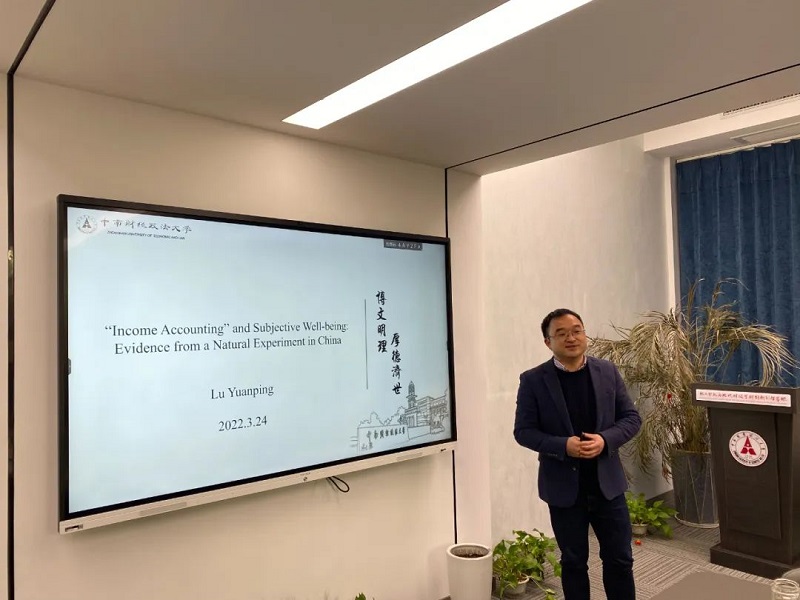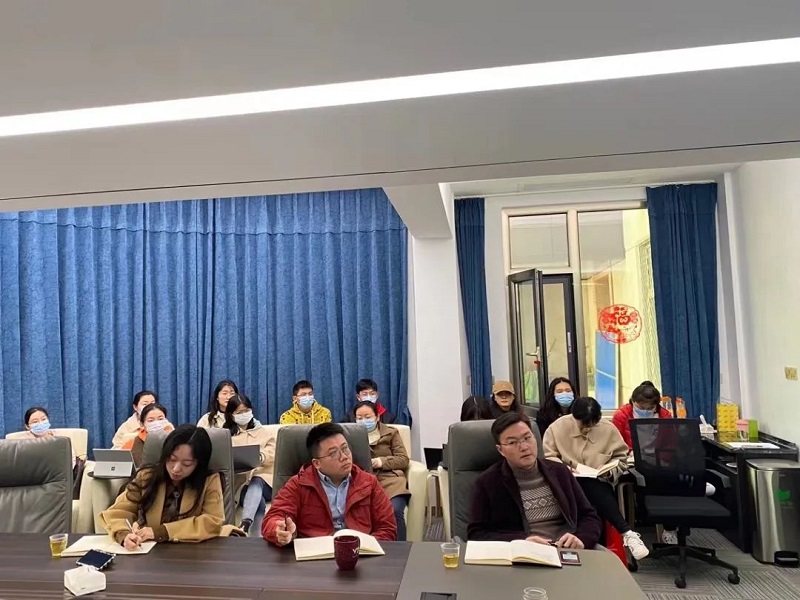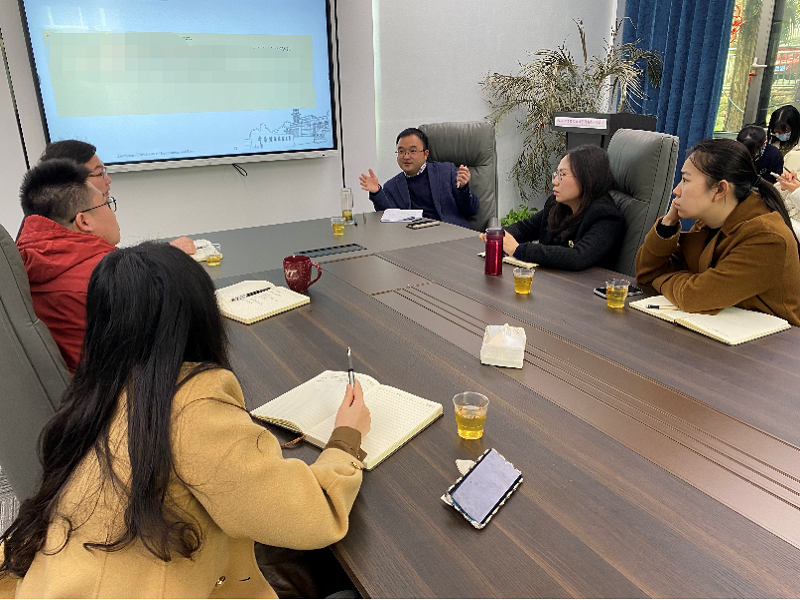On 24 March 2022, the 11th Xi Xian Academic Luncheon, co-organised by IIDPF and the School of Public Finance and Taxation, was successfully held in Conference Room 119, Wenqin Building.

Professor Lu Yuanping, Professor of the School of Public Finance and Taxation and Executive Deputy Director of the IIDPF, was the guest speaker for this academic luncheon and gave a talk entitled "'Income Accounting' and Subjective Well-being: Evidence from a Natural Experiment in China". The forum was chaired by IIDPF researcher Dr. Zou Wei and attended by over forty faculty and students, including all researchers at the base. As a populous country, how to improve the sense of access, happiness and security of the Chinese people is a top priority for the government. Residents' subjective well-being (SWB) is mainly expressed as individuals' satisfaction with their lives and is influenced by a number of factors. Among them, both absolute and relative income are important factors affecting residents' subjective well-being. Contemporary China's Targeted Poverty Alleviation Policy (TPAP), which has raised people's incomes through poverty subsidies and capacity building, has accumulated valuable experience in improving the subjective well-being of the poor, and is a major socialist practice with Chinese characteristics that deserves to be summarised in depth.

Using the China Household Finance Survey (CHFS) dataset, Professor Lu Yuanping found that targeted poverty alleviation policies significantly improved the subjective well-being of the poor. In the meantime, income disparity has a different impact on an individual's subjective well-being. Absolute income disparity affects individual well-being in the short term, while relative income disparity is the main determinant of individuals maintaining their well-being in the long term. Professor Lu also points out that long-term subsidies may produce "hedonic adaptation" and welfare dependency effects, thereby reducing subjective well-being, demonstrating the important impact of changes in relative income on people's well-being, and providing theoretical and empirical evidence of the welfare dependency effect of government cash transfers.

Professor Lu's wonderful sharing attracted the audience, who participated in interactive exchanges. Professor Lu's research provides a theoretical and empirical basis for studying the adaptation to happiness of Chinese residents, as well as a basis for policy-making in China to solve the problem of income distribution and achieve common prosperity.
